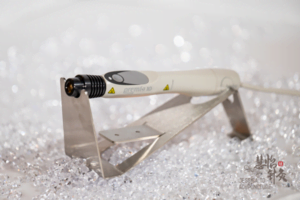If you’re reading this, you’re probably curious why your Acupuncturist (and let’s be serious, even your parents have probably said this to you at one point) constantly reminds you to keep warm and avoid the cold. And as you’ve probably done before, you smile and say sure… but it slipped your mind again last week when the Edmonton area got another 15cm of snow, the temperature plummeted to -15°C, AND the wind gusted to 60km/h.
The explanation can be a long one, but I’m going to try and explain a layperson’s version to you so you can get the gist of how and why without several years of education on Traditional Chinese Medicine (TCM) theory.

Meridians and Qi flow – How they work
Imagine if you will, a body system that runs not alternatively, but alongside your normal body systems identified in western medicine (such as our circulatory and lymphatic systems). Traditional Chinese Medicine is formed with the concept that there is the presence of Qi in our bodies, and there is a network system (meridians) that move it around our body and organs. The idea of a meridian system can be likened to a cousin of the circulatory and lymph systems western medicine is very familiar with… just the contents inside are obviously different and cannot currently be substantiated.
Qi is believed to be in constant motion in the body, and disruptions in the flow will result in the physical and psychological discomforts and/or medical ailments patients present to their health practitioners. The flow of Qi can be envisioned as similar to water in a pipe delivery system. When normally functioning, there are no issues and water travels at a normal speed, amount, and the desired direction. If something changes the speed, direction, and/or amount of water, something has to give in the system later on. Like moving water, Qi flow can change speeds (get quicker or slow down), get blocked and stuck in a spot by an obstruction (like having physical and/or mental trauma), or get stuck and reversed in flow (nobody wants a backed-up toilet, and it’s definitely not great in Qi flow either).

Wind and Cold can disrupt Qi flow
There are many things that can disrupt the flow of Qi. However, there are two things that disrupt and slow down the flow and can be found fairly frequently in the Edmonton area: Wind and Cold. You may have noticed cold weather can affect the blood flow in your hands and feet, that spot on the base of your neck and/or your lower back seems to feel achy whenever it’s freezing, or your joints ache and make undesirable noises when the weather gets chilly with rain. You may have also noticed that sometimes after a really windy day, you wind up with an uncomfortable headache pulling up from the base of your neck to the back of your head. Maybe it’s a coincidence or maybe you inadvertently introduced what TCM calls Wind and Cold pathogenic factors to your body!
How acupuncture can return Qi flow to normal
So… Now you think you have Wind or Cold in your body because you ache and hurt, and you just can’t seem to bounce back like you used to. What can you do to fix this? Your acupuncturist may use solid filiform needles to insert into meridian points, joint spaces, muscle trigger points, and various other types of points to assist your body in making the flow of Qi return to normal. In the cases where Cold is the primary suspected culprit, they may use heating devices like a TDP lamp, electronic moxa stick, or moxa heat packs to warm the body efficiently. If you’re still reading, the secret to avoiding this uncomfortable pain, tightness, and achiness has been in front of you all along: You should keep warm and avoid the cold. But of course, your trusty acupuncturist won’t mind seeing you more often if you can’t! 😊

Jessica To
Acupuncturist at Pivotal Physiotherapy (Fort Sask)
